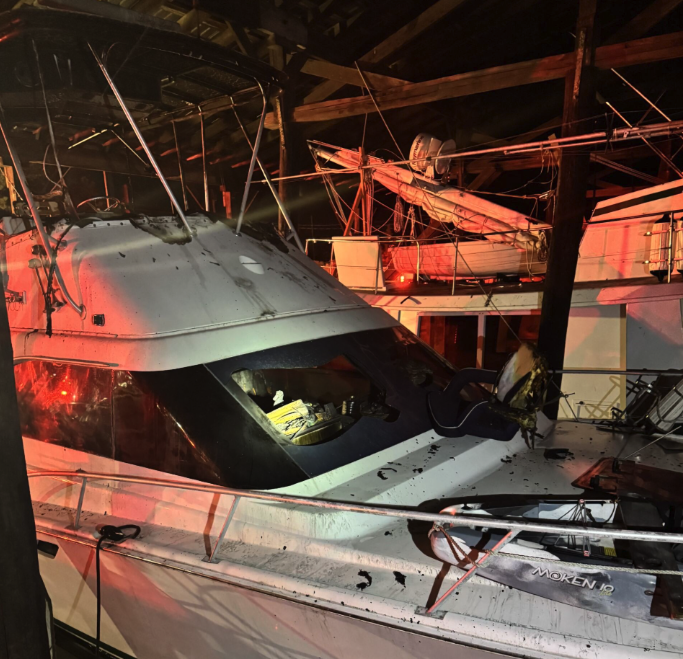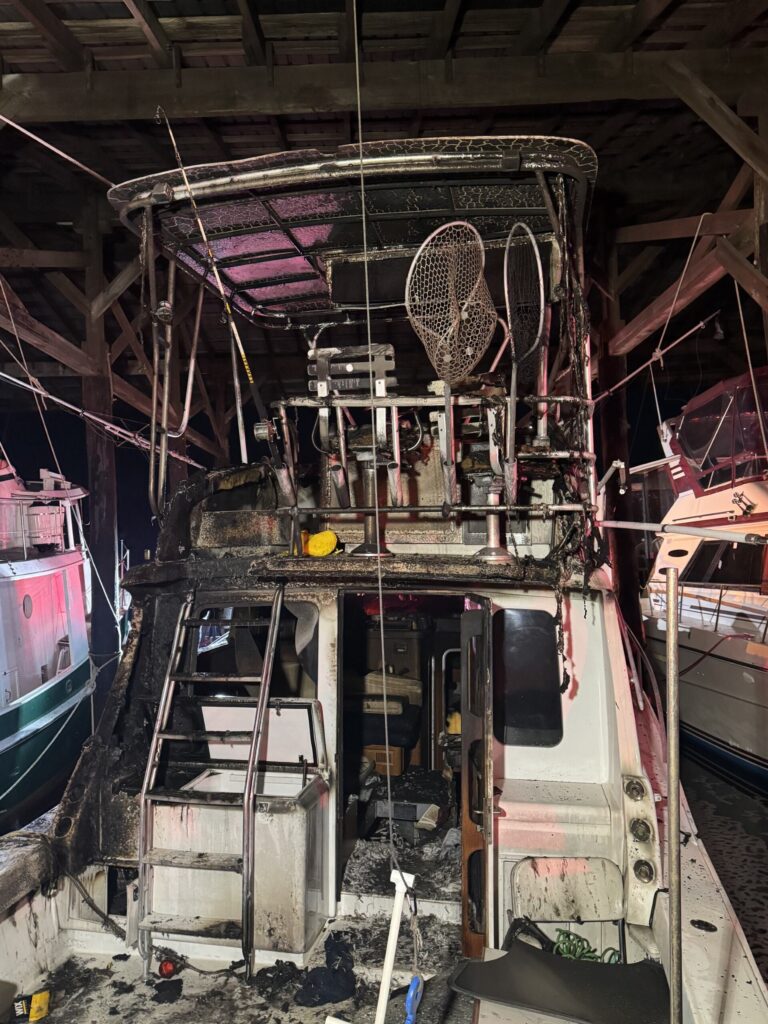Boating is one of the most exciting ways to explore the open water, but it also comes with certain risks. One of the most dangerous situations a boater can face is a boat fire. While it’s not a common occurrence, boat fires are incredibly serious and can quickly escalate if not handled correctly. If you’re boating on the Chesapeake Bay or any nearby waters like Poquoson, VA, it’s essential to be prepared for the unexpected, including knowing how to respond if a fire breaks out on your vessel. This guide will walk you through the necessary steps to take if a boat fire starts, ensuring that you and your passengers stay safe.
Understanding the Causes of Boat Fires
Boat fires can be caused by many factors. The most common causes include electrical failures, fuel system malfunctions, cooking accidents, or overheating of engine compartments. The confined space of a boat and the presence of fuel and electrical systems make it a high-risk environment for fire, especially if these systems aren’t properly maintained. Knowing the common causes of boat fires can help you take precautions to avoid them, but it’s just as important to understand how to react when a fire does start.
Preventing Boat Fires
While this guide focuses on what to do if a fire starts, it’s worth noting that prevention is always better than reacting to a situation. Regularly inspecting your boat’s electrical system, fuel lines, and engine can prevent many fires from happening in the first place. Keeping your boat well-maintained is key to avoiding dangerous situations on the water.
What to Do If a Boat Fire Starts
If a fire does break out on your boat, it’s essential to remain calm and follow these steps immediately to ensure everyone’s safety.
- Alert Everyone on Board and Assess the Situation
The first thing you should do when you detect a fire on your boat is to alert everyone on board. Make sure that all passengers are aware of the situation and understand the urgency. Quickly assess the size and type of the fire. If the fire is small and manageable, you can take steps to extinguish it yourself. However, if the fire is large, spreading quickly, or you are unsure of how to control it, your priority should be evacuating the boat and calling for help.
Things to do:
- Shout to alert everyone on board.
- Ensure all passengers are aware of where the life jackets and emergency equipment are located.
- If possible, try to locate the source of the fire to determine if it can be safely extinguished.
- Shut Down the Engine and Power Supply
One of the first things you need to do in the event of a boat fire is to shut off the engine and any electrical systems on the boat. This helps prevent the fire from spreading to the fuel system or further damaging the boat. A fire that originates from the engine area or electrical system can quickly escalate if the engine continues to run, feeding the flames with additional fuel or power.
Things to do:
- Turn off the engine immediately.
- Shut off any electrical systems, including the battery and power supply.
- Disconnect any other systems that may be feeding the fire, like fuel lines, if it’s safe to do so.
- Use a Fire Extinguisher
If the fire is small and contained, using a fire extinguisher can be your best option to stop it from spreading. Boat fires are typically best handled with a dry chemical fire extinguisher, which is designed to work on multiple types of fires, including electrical, flammable liquid, and grease fires. Always use the proper fire extinguisher for the type of fire you’re dealing with. The most common fire extinguishers on boats are ABC-rated, which cover most boat fire scenarios.
Things to do:
- Locate the fire extinguisher, which should be within easy reach on the boat.
- Use the “PASS” method to operate the extinguisher:
- Pull the pin
- Aim the nozzle at the base of the fire
- Squeeze the handle
- Sweep from side to side
- If the fire is too large or continues to grow, evacuate immediately.
- Evacuate the Boat if Necessary
If the fire is out of control, your priority should be evacuating the boat and getting everyone to safety. Make sure everyone on board is wearing a life jacket, especially if the fire has made the boat unstable. If you have a distress beacon, use it to signal for help, or use a marine radio to call for assistance. If there’s no marine radio, use your phone (in a waterproof case) to call emergency services.
Things to do:
- Get everyone to safety, away from the boat.
- Evacuate in an orderly manner to avoid panic.
- Signal for help using a distress signal or flare, if needed.
- Use the boat’s life jackets and a life raft or dinghy if necessary.
- Call for Help and Provide Your Location
Once you are safely off the boat, call for help immediately. Provide your location to the Coast Guard or local emergency services, and explain the situation as clearly as possible. The quicker help arrives, the better your chances of preventing serious damage to the boat.
Things to do:
- Use your phone or VHF radio to call emergency services.
- Provide your exact location, including nearby landmarks or GPS coordinates.
- Stay calm and follow instructions from emergency responders.
- Don’t Reboard Until the Fire is Fully Extinguished
Even if you think the fire is out, don’t board the boat until it is thoroughly inspected by fire professionals or the local authorities. A fire can flare up again if not fully extinguished, especially in areas like the engine compartment or fuel lines.
Things to do:
- Wait for professionals to declare the boat safe to reboard.
- Do not re-enter the boat until the fire is completely extinguished and the boat is stable.
- Perform a Post-Incident Assessment
After the fire is under control and help has arrived, perform a thorough assessment of the damage to your boat. Take note of any structural or mechanical issues that may have resulted from the fire, and consider getting the boat inspected by professionals to ensure it’s safe to use again.
Things to do:
- Take photos of the damage for insurance purposes.
- File a report with the relevant authorities or marina if necessary.
- Schedule a boat inspection to assess the long-term damage.
- Learn From the Experience and Prevent Future Fires
The best way to handle a boat fire is to prevent it from happening in the first place. Learning from the incident and making the necessary changes to your maintenance and safety practices can significantly reduce the chances of a fire occurring in the future.
Things to do:
- Review your boat’s electrical systems and fuel lines regularly.
- Maintain fire extinguishers and ensure they are easily accessible.
- Educate your passengers about boat fire safety and emergency procedures.
- Consider installing automatic fire suppression systems for added protection.
That’s a Wrap on What to do if a Boat Fire Starts
Boat fires are rare but dangerous, and the more prepared you are, the better your chances of minimizing the damage. By following these steps—alerting everyone on board, shutting down the engine, using a fire extinguisher, evacuating if necessary, and calling for help—you can greatly improve your chances of preventing a disaster.
Regular maintenance and safety checks can go a long way in preventing boat fires. Be sure to check your boat regularly for any potential fire hazards, such as faulty wiring, fuel leaks, or improperly stored flammable materials. If you’re unsure about your boat’s safety systems, a marina like Whitehouse Cove Marina can help with professional inspections and maintenance. Stay safe, keep your boat well-maintained, and always be ready to act if an emergency arises.
At Whitehouse Cove Marina, we’re committed to providing our boaters with the safest and most enjoyable experience on the Chesapeake Bay. Contact us today to reserve a boat slip rental and prepare for your next adventure on the water!


